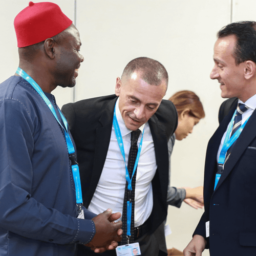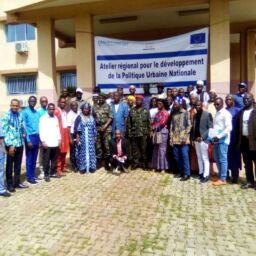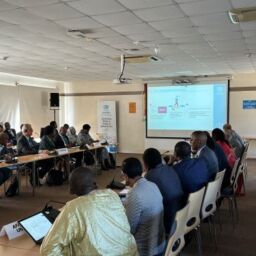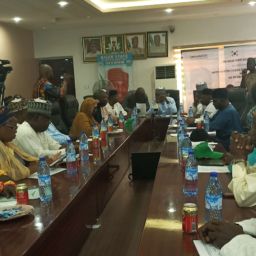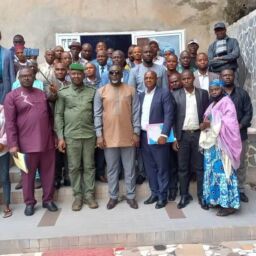Elaborating Guinea’s National Urban Policy
Kankan Regional Consultation Workshop

August 8th 2022 – Kankan city, Guinea
On August 8th, 2022, in Kankan city, Guinea, 45 participants from administrative and local authorities, public and private sector, civil society, traditional authorities, and professional orders, participated in the regional consultation workshop for the elaboration of the Guinea’s National Urban Policy (NUP). As part of the SANITA[1] project funded by the European Union, this workshop is one of the seven regional multi-stakeholder workshops scheduled from 29 July to 20 August 2022, for the elaboration of the Guinea’s NUP which is currently at the Formulation phase. The main aim was to present the progress in developing the NUP as well as to collect local issues from all regions in a participatory approach.
In his opening remarks, Mr. Ali Camara, Governor of the region, welcomed the initiative to improve cities like Kankan which are still sparsely populated, with adequate space and huge potential for sustainable urbanization, including regulation, housing, and infrastructure development for the territory. Subsequently Ms. Nanfadima Sidibé, Regional Housing Inspector of Kankan, proposed that the workshop places focus on land management to consider the real situation of secondary cities.
To ensure the participants were engaged in a vibrant and participatory manner, the workshop was divided into two main parts: a plenary session and a group work session. To start with, the first presentation summarized the diagnosis of the urban sector carried out in 2020. Participants were furnished with the current situation of urbanization in Guinea, its challenges and opportunities as well as the proposed initiatives for inclusive and sustainable urban development. This raised awareness among participants, actors and stakeholders on the importance of the urban development issues for the country/the region. The second presentation introduced the concept of national urban policy, explaining to the participants the content and process of developing a NUP as well as the actors and their role in its development and implementation.
In the second part of the workshop, 4 groups comprising of 10 diverse participants were formed and assigned two main exercises. The first exercise dealt with discussing the links between the urban diagnosis and the national urban policy, focusing on the recommendations. The second exercise focused on the groups collating experiences, ideas, local views and priorities to be integrated into the National Urban Policy. A key outcome of the workshop is the collection of propositions from different actors of urbanization, covering areas such as land management, decentralization housing and climate changes, housing. These will be deliberated upon during a workshop in the capital, Conakry, before the final regional priorities are integrated into the NUP.
The workshop concluded with a synthesis of the exchanges on the National Urban Policy and the appropriation of the process by the participants.
[1] The Urban Development and Sanitation Programme in Guinea (SANITA), is a programme funded by the European Union, with National Urban Policy being one of the five result areas of the programme.


